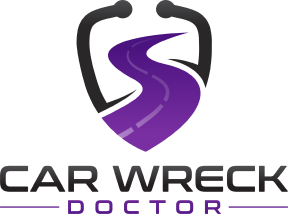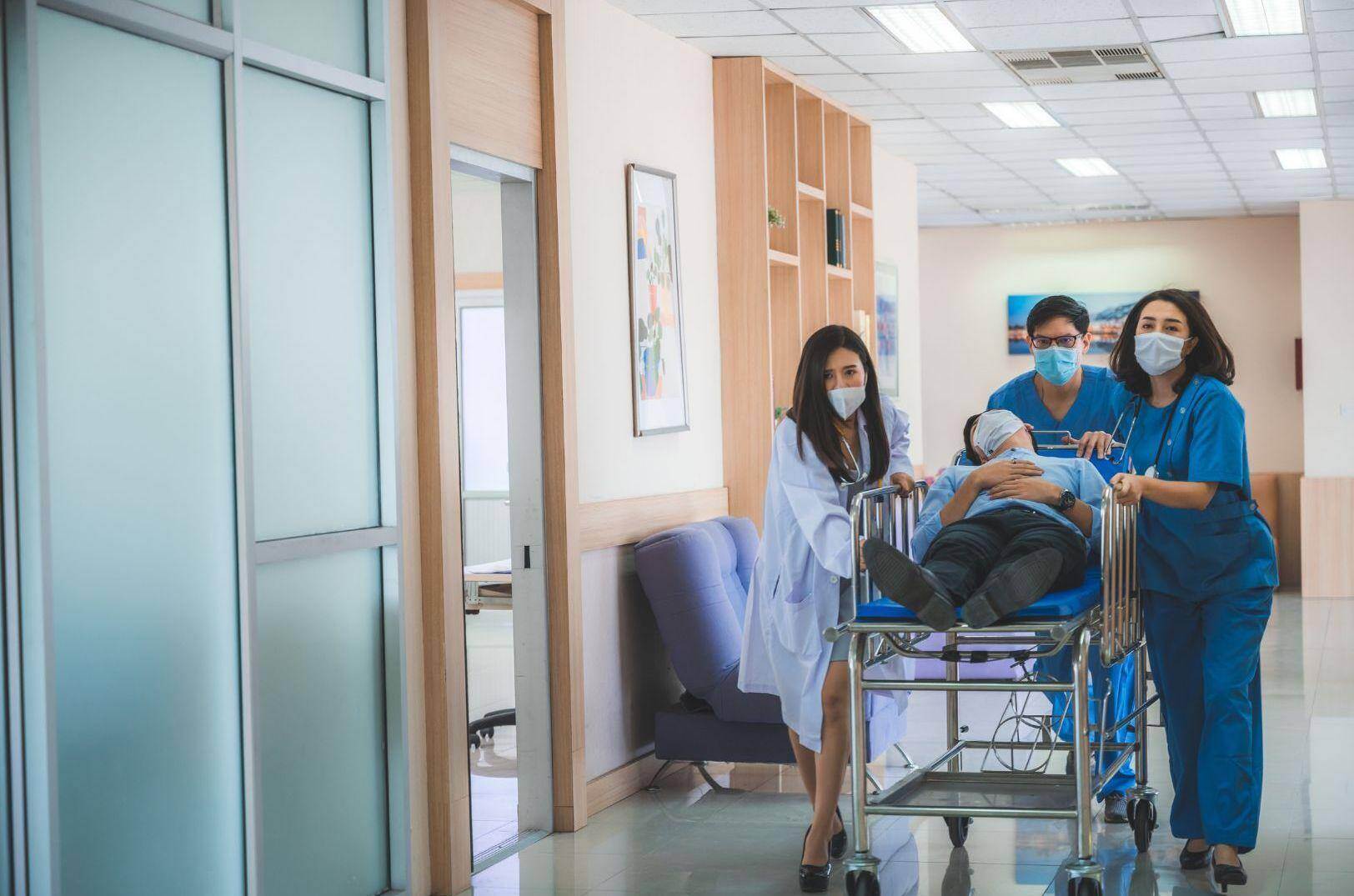Car accidents can lead to a range of injuries, some of which may not be immediately apparent. Understanding the complexities of neurological injuries is important for your recovery and long-term health. In Toledo, Ohio, where auto accidents are prevalent, knowing how to choose the best neurologist is a vital step toward obtaining the right care.
Neurologists specialize in diagnosing and treating conditions related to the nervous system, including traumatic brain injuries, spinal cord injuries, and peripheral nerve damage. These injuries can significantly affect your quality of life, making it essential to find a qualified expert who understands your specific needs and medical history.
Types of Brain and Nerve Injuries Treated in Toledo
Neurologists are medical specialists who are well-versed in the complex nervous system of the human body, which includes the brain, spinal cord, and peripheral nerves. Their expertise lies in diagnosing and treating a variety of neurological injuries and conditions that may result from traumatic events, such as car accidents. Among the injuries that fall under their purview are those associated with the spinal column, such as fractures in the back or neck that often derive from whiplash. These experts in neurological care are adept at assessing the full spectrum of accident injuries, from those with overt symptoms to hidden injuries.
After a motor vehicle collision in Toledo, Ohio, the body can suffer significant trauma. Neurological conditions commonly observed after car accidents include concussions—a form of traumatic brain injury—as well as cerebral contusions, which occur due to a strong impact on the head. To ensure proper treatment, neurologists employ various diagnostic tools like EMG tests to analyze muscle function and nerve conduction. These evaluations are especially critical in diagnosing peripheral nerve injuries, ensuring that patients receive effective treatments tailored to their specific medical needs.
Traumatic Brain Injuries (TBI)
Traumatic Brain Injuries, or TBIs, are among the most severe consequences of car accidents, often resulting in lasting neurological damage and a decline in quality of life. These injuries take many forms, from mild concussions with temporary symptoms to catastrophic injuries causing permanent impairment. Mild TBIs, while less dire, can still seriously affect daily living and cognitive function, with symptoms lingering for weeks or months. A number of factors, such as the force of the impact, the position of the vehicle during the crash, the speed of the vehicles involved, and seatbelt use, can all influence the severity of TBIs. The aftermath of these injuries underscores the importance of seeking medical care immediately after a car accident to prevent further complications and to initiate a proper treatment process.
Spinal Cord Injuries
Spinal cord injuries are particularly grave as they affect the spinal column—an integral part of the nervous system responsible for transmitting signals between the brain and the rest of the body. Damage to the vertebrae, ligaments, or disks can disrupt this communication pathway, potentially causing loss of function and sensation, or even total paralysis below the site of the injury. Common symptoms include excruciating neck pain, limb weakness, loss of sensation, difficulty breathing, and incontinence. These injuries often stem from the high-impact forces experienced during car accidents, making immediate medical evaluation by healthcare providers a necessity. Without swift and adequate neurological care, spinal cord injuries can lead to permanent complications, dramatically affecting an individual’s ability to lead a normal life.

Peripheral Nerve Damage
Peripheral nerve injuries, which occur in the nervous system outside the brain and spinal cord, can profoundly impact movement, sensation, and organ function. Individuals in Toledo with peripheral nerve damage may experience a range of symptoms, including tingling, numbness, or a burning pain in the affected regions. This type of damage can lead to muscle weakness, significantly hampering a person's ability to carry out daily tasks, and may even cause twitching or muscle atrophy—often signs of a deeper neurological issue. Consequently, it's important for those experiencing these symptoms to undergo medical examinations, as these can be indicative of peripheral nerve injuries requiring professional intervention. Seeking attention from a neurologist after sustaining such damage is vital for optimizing recovery and ensuring that individuals have access to a full spectrum of treatment options.
Evaluating Toledo Neurologists' Qualifications
When seeking the best neurologist in Toledo, Ohio after a car accident, it's essential to research the credentials and experience of the medical professionals under consideration. Here are key factors to look for:
Credentials:
- Board Certification: Confirm that the neurologist is board-certified, indicating that they have passed rigorous exams on neurology and neurological conditions.
- Education: Check their educational background, including medical school, residency, and any fellowships, to understand their training level.
Experience:
- Specialization: Ensure the neurologist specializes in the type of neurological injury sustained, such as traumatic brain injury or spinal cord injury.
- Clinical Experience: Look into how long they have been practicing and their experience treating accident injuries and neurological disorders specific to your case.
Researching a neurologist's credentials and experience is pivotal in determining their ability to provide effective treatments and improve quality of life after neurological damage due to a car accident.
Toledo Neurologists' Diagnostic Techniques
When seeking a neurologist in Toledo, Ohio following a car accident, the diagnostic methods and treatment approaches used by healthcare providers are important to consider. Comprehensive diagnosis and individualized treatment play a significant role in the recovery of patients with neurological injuries. In this part of our guide, we will delve into the core components of neurological assessment and therapy, including medical histories and physical examinations, imaging technology, cognitive testing, and medication management strategies.
Medical histories and physical examinations
Acquiring medical history is an essential first step in diagnosing neurological disorders. It provides a map of the patient's health, helping to lay the groundwork for accurate diagnosis and treatment. Neurologists in Toledo, Ohio will meticulously document examination findings, relevant laboratory tests, and imaging results. Additionally, they gather non-medical evidence such as patient accounts of daily challenges and limitations that stem from their condition.
During the physical examination, neurologists execute a series of tests to assess different aspects of the nervous system, checking for any signs of dysfunction. This evaluation can include testing motor and sensory functions, reflexes, coordination, and cognitive abilities. An assessment of cranial nerves may help pinpoint issues such as loss of vision or double vision, altered sense of smell, facial numbness, or slurred speech. The physical examination is conducted in a manner that systematically rules out or confirms potential neurological issues that could be contributing to the patient's condition post-accident.
Imaging studies and their importance
Imaging studies play an indispensable role in providing visual evidence of injuries, especially when internal damage is not immediately apparent. CT scans and MRI scans are routinely used tools that reveal bleeding, skull fractures, subtle brain injuries, and spinal cord damage that may result from a car accident. CT scans deliver prompt and detailed images of the brain, enabling quick detection of acute conditions like hemorrhages. MRI scans offer high-resolution pictures of soft tissues and are invaluable for diagnosing complex injuries that may not be visible on a CT scan. Additionally, X-rays uncover fractures or dislocations in the spine, vital for comprehending the entire scope of the patient's spinal injuries. Furthermore, EEGs provide an assessment of electrical activity in the brain, which plays an essential part in detecting any seizure activity or neurological anomalies induced by traumatic brain or spinal injury.

Cognitive testing techniques
Cognitive testing techniques are another aspect neurologists use when treating a patient who has been in a car accident. These tests evaluate different cognitive functions and perceptual abilities, which can be affected by a neurological condition. Standardized tests may include tasks designed to measure memory retention, the ability to perform complex reasoning, or verbal learning skill sets. These assessments are particularly pertinent in cases where cognitive function might impact a patient's safety in activities such as driving.
Medication management
Neurologists are well-versed in prescribing medications tailored to address various accident-related symptoms. Pain, seizures, muscle spasms, and mood disorders that emerge as a consequence of brain tissue damage can be managed with proper medication. Adherence to medication regimens is paramount, and patients should avoid substances such as alcohol, which may compound issues like seizure risks. Adequate medication management is a pillar of neurological care, significantly enhancing recovery and improving the long-term quality of life for survivors of car accidents.
By understanding the methods and treatments that a neurologist in Toledo, Ohio might utilize, you can gauge the thoroughness and appropriateness of care you or a loved one will receive following a car accident. Proper treatment should address both the physical and cognitive challenges faced by survivors, and the neurologist's approach must be rooted in comprehensive evaluation and evidence-based management strategies to ensure the best possible outcomes for those suffering from neurological damage or disorders.
Seek Immediate Medical Attention in Toledo Post-Accident
If you've been involved in a car accident, it's important to seek immediate medical attention from a neurologist in Toledo, Ohio, even if you initially feel unharmed. Some symptoms of neurological injuries like traumatic brain injury or spinal cord damage might not manifest right away. Delayed onset of symptoms is not uncommon, and conditions like hidden injuries to the spinal column or cognitive function impairment could emerge later, complicating your recovery.
Early medical care ensures that any neurological damage is diagnosed and treated promptly, which is vital for effective treatments and enhancing the quality of life post-accident. Besides the medical benefits, proper documentation of your visit to a healthcare provider is integral. Medical records serve as important evidence supporting personal injury claims, establishing a clear link between the accident and your injuries. They are essential for legal proceedings and insurance matters.
- Visit a medical professional immediately.
- Monitor for signs of neurological disorders.
- Document all medical care and treatment options provided.
- Understand that symptoms may develop over time.
- Be aware of the legal implications of your medical records.

Making An Informed Choice For Your Health
Selecting the right neurologist to help with post-car accident neurological concerns is vital for your well-being and recovery. A neurologist with specific experience in treating traumatic injuries to the nervous system can provide the proper treatment for accident injuries, potentially improving your quality of life. Remember, some medical conditions, such as hidden injuries or delayed symptoms of neurological damage, may not be immediately obvious. Thus, seeking thorough medical care, even after an initial all-clear, is essential.
At Car Wreck Doctor in Toledo, Ohio, we will take a comprehensive approach to your treatment process, considering any cognitive, sensory, or motor function impairments. Our treatments range from medication to speech therapy, depending on the nature and severity of the injury, such as a spinal injury or neurological condition.
Stay informed about your health and consult with medical professionals who specialize in neurological care. To get started, click the button below for a free consultation.
News in Toledo:
Click The Button Below For More Information:


